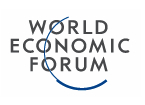NEPAD E-schools Initiative to Bring Computer Literacy to African Schools
Published 06-12-03
Submitted by World Economic Forum
The programme will energetically target the young to ensure that the majority of the people of the continent will have the skills necessary for them to function in the information society and knowledge economy. It will make a huge contribution to the social and economic development of the continent.
Among the aims of the initiative launched today:
- To provide every African school-leaver with at least the basic skills required to function in the new knowledge economy and information society
- To make every African learner health literate, thus empowering them and their families to lead a healthier and more fulfilling life
- To make the youth the priority target sector for high intervention programmes aimed at bridging the digital divide and building the foundations for a more equitable Global Information Society.
Speaking at the launch, Henry Chasia, Executive Deputy Chairperson of the e-Africa initiative said, “I have no doubt that of all the NEPAD projects the NEPAD E-Schools Initiative will have the greatest impact on Africa's ability to achieve the millennium development goals.’
Every NEPAD E-school will have at least one basic ICT lab that is equipped with the ICT tools that students need to be able to function in the knowledge economy. Working in partnership with business partners, it is hoped the initiative will transform schools across the continent.
“With the NEPAD E-Schools Initiative we have the opportunity to accelerate the closing of the gap between technology empowered and technology excluded communities, focusing on sustainability for the community and HP,” said Olivier Suinat, General Manager, Africa, HP. “We will provide participating members or member states with uniquely designed and suitable solutions for the African market and self-sustainable ICT architectures to dramatically enhance education to support economic growth," he added.
A coordinated teacher-training programme will facilitate the training of thousands of teachers in several countries in a short space of time allowing for pooling of resources and sharing of experience. Every NEPAD e-school will also be a basic health point for health literacy, research health monitoring, data collection and development of health campaigns.
The World Economic Forum is an independent international organization committed to improving the state of the world. The Forum provides a collaborative framework for the world's leaders to address global issues, engaging particularly its corporate members in global citizenship. Incorporated as a foundation, and based in Geneva, Switzerland, the World Economic Forum is impartial and not-for-profit; it is tied to no political, partisan or national interests. The Forum has NGO consultative status with the Economic and Social Council of the United Nations. (http://www.weforum.org)


